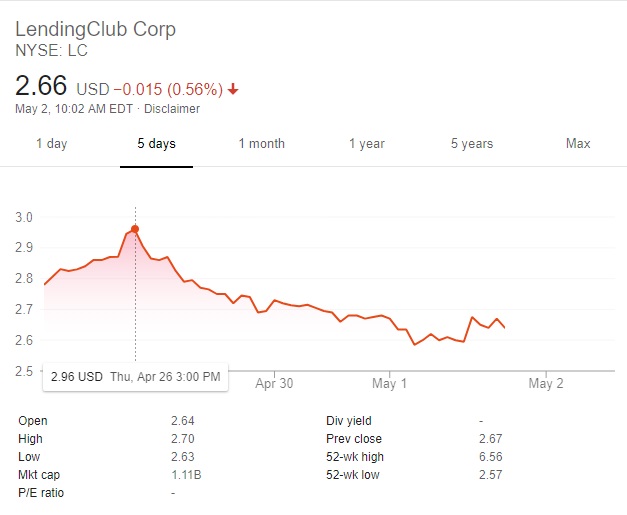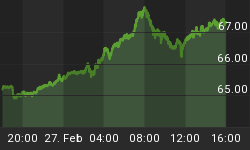Technology lender Lending Club has seen its share drop sharply yesterday after charges from the Federal Trade Commission that the company was misleading customers about “no hidden fees”.
Share prices have plummeted over the past five days:

(Click to enlarge)
But overall, it’s been a bad few years for the company, which has lost some 80 percent of its market value since it went public in 2014.
Now, the FTC isn’t going to do it any favors.
The regulatory body accused Lending Club of deducted hundreds or thousands of dollars in hidden up-front fees from loans after telling customers that here were no hidden fees.
“This case demonstrates the importance to consumers of having truthful information from lenders, including online marketplace lenders,” said Reilly Dolan, acting director of the FTC’s Bureau of Consumer Protection. “Stopping this kind of conduct will help consumers make informed choices about loan offers.”
According to the FTC, Lending Club recognized that its hidden fee was a significant problem for consumers, and an internal review noted that its claims about the fee and the amount consumers would receive “could be perceived as deceptive as it is likely to mislead the consumer.”
An attorney for one of the company’s largest investors also warned the company that the “relative obscurity” of the up-front fee in light of the company’s prominent “no hidden fees” representation could make the company a target for a law enforcement action.
According to the FTC, Lending Club ignored these and other warnings and, over time, made its deceptive “no hidden fees” claim even more prominent. Related: Mining Giant Hit Hard In $3 Billion Royalties Scandal
Further, the FTC alleged that Lending Club falsely told loan applicants that “Investors Have Backed Your Loan” while knowing that many of them would never get a loan, a practice that delayed applicants from seeking loans elsewhere.
Piling on the accusations, the FTC also noted that the company had withdrawn “double payments” from consumers’ accounts and continues to charge those who cancelled automatic payments or paid off their loans, leading to overdraft fees, among other complications for consumers.
In a statement, Lending Club said it disagreed with the FTC, even though “we support the important role that the FTC plays in encouraging appropriate standards and best practices”.
“[We] are very disappointed that it was not possible to resolve the matter constructively without the agency’s current leadership,” the company said.
And it’s not the first time Lending Club has found itself wading in the mire.
In May 2016, Lending Club CEO Renaud Laplanche resigned after “an internal review of sales of $22 million in near-prime loans to a single investor, in contravention of the investor’s express instructions as to a non-credit and non-pricing element, in March and April 2016.”
The review also revealed separately that there was a “failure to inform the board's Risk Committee of personal interests held in a third-party fund while the Company was contemplating an investment in the same fund”.
On that day, stocks responded by plummeting 26 percent.
For borrowers, wading through the sea of new, non-bank lenders can be tricky. Some don’t charge fees, while others do—apparently even when they claim not to. And if your credit score is not stellar and you think you’re still getting a good deal, chances are there’s some deception or misleading at play.
By Fred Dunkley for Safehaven.com
More Top Reads From Safehaven.com:
















